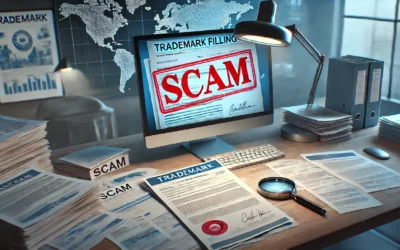There is currently a lot of hype around non-fungible tokens, NFTs. Beyond cat GIFs that are being sold for ridiculous prices, brands are increasingly using NFTs to engage with their fans and to create additional revenue streams. NFTs also raise a host of legal issues, including intellectual property and trademark issues.
What are NFTs?
NFTs are pieces of unique code existing in the blockchain. They are non-replicable and immutable. There can exist only one token of a kind so each token is unique. A token usually relates to another asset, digital or physical, and contains information about that underlying asset. Typical assets are artwork and digital collectibles, but they could be anything. Sometimes, but rarely due to cost reasons, the NFT can contain the artwork itself.
In a non-technical sense, NFTs are most typically used as digital certificates of authenticity. A simplified analogy is an artist signing his artwork. Artwork that has the author’s original signature is of course more valuable than copies of that art. The insurance value of Mona Lisa is almost 1 Billion USD, but it is possible to buy copies of it in the Louvre gift shop for much cheaper. In most cases, the NFTs are used as guarantees of authenticity of the underlying asset (e.g. artwork).
Why are NFTs important for brand owners?
NFTs can be used by brand owners to “certify” the authenticity of their merchandise or main product. The band Kings of Leon released their album “When You See Yourself” as an NFT. The purchaser of the NFT basically got a link to download the album. The NFT’s role was to guarantee that the purchaser got an authentic product. The more expensive NFT packages included things like backstage passes and access to rare digital material.
NBA has sold electronic trading cards and video clips as NFTs on their online marketplace called NBA Top Shot. The items have generated over a billion USD in sales (including the aftermarket sales) making them an important revenue stream. Many other companies, such as Nike and Lamborghini, are also using NFTs. Last year Nike even bought a company making NFT backed virtual shoes.
In short, brands use NFTs to create unique experiences for their customers and to generate new profit streams. The NFT serves as the guarantee of authenticity. Since NFTs are unique, they also create scarcity making the collectibles more valuable.
Since NFTs possess smart contract capabilities, it is possible to attach various conditions for them. For example, it is possible to mandate that from each resale of the NFT the original artist or issuer gets a share. NFT’s use cases will surely increase in the future beyond what is even imaginable right now.
How are NFTs classified in a trademark application?
Many companies have started to file trademark applications for NFTs. A trademark application must identify the goods and services offered under that mark. For example, Adidas is a trademark for shoes (among many other products) and Coca-Cola is a trademark for non-alcoholic beverage.
As said, NFTs are pieces of code that exist in the blockchain. According to Nice Classification, downloadable software products belong to class 9. For example, the US retailer Saks has registered the EU trademark SAKS for “digital media, namely, digital collectibles, digital tokens, non-fungible tokens (NFTs) and digital art” in class 9.
The EU trademark office does not yet have NFTs in its classification database (the Harmonized database) as a pre-approved item. For identifying NFTs in the application using broader terms that exist in the EUIPO’s database, they fall under “recorded content”, “media content” or “software” (class 9). Using these terms will ensure that the application covers NFTs. The applicant can also specify their goods as “non-fungible tokens”, and this seems to be acceptable to the EUIPO. The downside is that in that case the application cannot proceed to fast track as the term “non-fungible token” will go under manual review by EUIPO. Having said this, it is likely that NFTs will be added to the Harmonized database in the near future.
Those companies that have protected their trademark in class 9 and used broad terms such as “software” or “recorded content” already have trademarks that cover NFTs and they do not have to refile their trademarks with amended classification. For those companies that have used more specific terms, such as “gaming software” or “downloadable mobile applications”, the existing trademark registrations do not cover NFTs and they should consider filing new trademarks covering also NFTs.
Apart from actual tokens, there are many services that relate to NFTs. Here are some:
Class 35 includes retail services, which in turn include the operation of a market place where NFTs and NFT backed assets are being sold.
Class 36 includes services related to currencies and finance. Brokerage and issuing of NFTs is a class 36 service. Also included in class 36 is financial consulting, valuation services, processing payments and financial asset management. Cryptocurrency wallets are also in class 36.
Class 42 includes a variety of IT services and Saas-services. These include data security, encryption and authentication services, as well as data storage services in the blockchain. Also, technical consulting relating to blockchain and cryptocurrencies belong to class 42.
Conclusion
Companies that operate in tech or are interested in taking advantage of NFTs in their business should start by reviewing their current trademark registrations to see whether they already cover NFTs and NFT-related services.
Those companies that have protected their trademarks using broad product and service specifications may well find that their existing trademarks adequately cover NFTs. On the other hand, those companies that have used highly specific product and service specifications in their applications might well find that their existing trademarks are not sufficiently broad and should consider additional filings to patch their coverage.
Perfume decanting – legal or not?
Pefrume decanting operates in the grey area of trademarks. Read here what the legal risks are and whether perfume companies can object to that.



